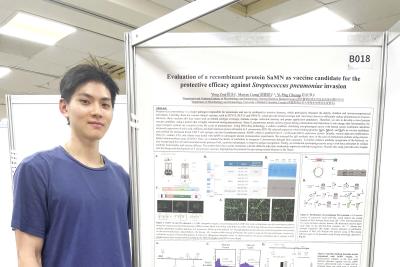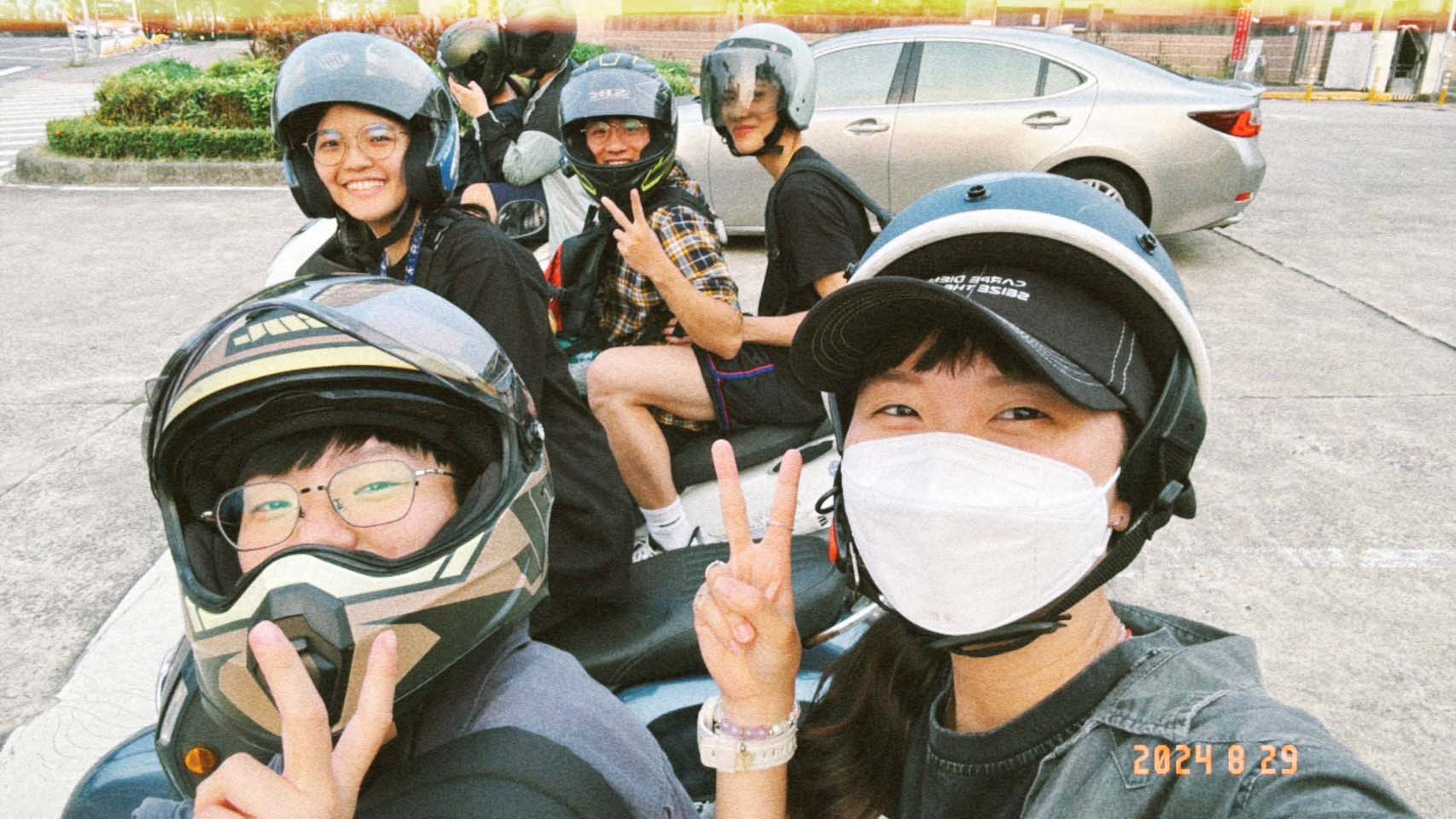Featured Student: Marcus Liang
January 20, 2025

January 20, 2025

I’m studying Microbiology and Immunology and plan to graduate in the class of 2026.
My three years, so far, studying Microbiology and Immunology, introduced me to many laboratory techniques and theories. Intrigued by what I learned, I wanted to exercise my knowledge and gain hands-on experience in research.
A question that I sought to answer – that also prompted me to apply for Science Co-op – was “how do microbiologists/immunologists contribute to science and society? How can I help contribute to the scientific community?”
Unsure about my future career path options after graduating from university, I wanted to see if research – whether that would be in industry or academia – was something I would enjoy and potentially pursue.
I’m currently on my second placement at the Bell Lab in Ottawa.
My research project involves taking advantage of pre-existing immunity to oncolytic viruses to improve tumor-infiltrating lymphocyte adoptive cell transfer (TIL-ACT) outcomes.
My weekly tasks include tissue culture work, planning and carrying out experiments, virus work and working on data analysis. A lot of the experiments I conduct are in vivo and in vitro, allowing me to gain hands-on experience working with murine models and patient samples. So far, it has been an eye-opening experience to see firsthand how my research can have clinical implications.
In my first placement, I spent four months at the National Defence Medical Centre in Taipei, Taiwan, where I helped co-author a research poster. I helped present the poster at the national bacteriology conference alongside a graduate student, where we highlighted our efforts to develop a novel vaccine candidate for S. pneumoniae. This placement allowed me to gain hands-on experience on bacterial work, flow cytometry and molecular cloning.
A lot of the most memorable experiences that I’ve had while enrolled in Science Co-op have come outside of the lab. The two labs that I’ve been part of so far helped me connect with individuals in a way that transcended the work environment.
My favourite experience was during my first placement in Taiwan. One day after we got done with experiments, all of the graduate students and I went to see a baseball game at the Taipei Dome (Chuang Lab). Not only was it my first live baseball game but I got to experience Taiwanese baseball culture – singing, chanting and dancing – while enjoying each other's excitement and company.

My first placement was an international placement. Nearing the end of my first job search, I started to consider the possibility of acquiring lab experience outside of Canada. I was hesitant at first, because I wasn’t sure how I would reach out to professors at different institutions around the world and meet the co-operative education requirements for the placement.
Being Taiwanese, I first looked at Taiwan. I also have many relatives in Taiwan, so felt that I would have a good support system (housing, healthcare, language, etc.). I started to reach out to professors whose research I was interested in, most of them being in the field of microbiology and immunology. To my luck, one cold email to a lab at the National Defense Medical University in Taipei answered my email. From there, we had virtual meetings and exchanges to finalize details and accommodations.
I believe that I was in a very privileged position, however, I believe that a good piece of advice to all Science Co-op students is to never shy away from possibilities and to not be afraid of stepping out of your comfort zone.
You can never know what may happen if you don’t take a risk. By taking what seemed like an uncertain path, I was able to reconnect with my cultural roots while gaining professional skills and experience doing innovative research!
I must sincerely thank my Co-op Coordinator, Barbara Seredick, for her support and patience as she guided me throughout this journey.
Apart from the help that I received, I believe that prospective students aiming to complete an international placement should take the necessary steps to set themselves up for success.
Things that could be done include: finding suitable housing months prior to arrival, as well as doing research on weather, living conditions and methods of transport.
Being well prepared can help both the physical and mental aspect of settling in a new environment, as there are very limited resources provided otherwise!
Working in a lab with other researchers has taught me that there is no such thing as a personal achievement; everything is the result of countless individuals and their support.
The biggest achievement of my Science Co-op journey so far was the ability to optimize an assay for my research project. Over the course of two months, the graduate student and I worked hard to perfect experimental conditions, reagents, procedure, etc. I vividly remember our first time running the assay for six hours, which yielded no results. I felt helpless, tired and wanted to give up.
However, through the guidance of those in the lab, we were able to find optimism time after time, gradually improving. Ultimately, by the time of our poster presentation, we were able to conduct the assay in half the time with reproducible results.
Personally, this was both a quantifiable achievement materialistically and emotionally; we were able to author the poster presented at a national bacteriology conference, but it also showed me that a positive and disciplined mindset over time leads to progress.
Initially for any placement, especially in wet lab positions, there are often ongoing projects that you would be expected to take over. However, there can be a substantial knowledge gap that needs to be covered to ensure continuation of research.
I met this obstacle in both research placements. It was extremely difficult, because I felt overwhelmed by the amount of pre-existing data and information. To overcome this, I made sure to ask my supervisors many questions about background knowledge, data, experimental data, etc.
In addition, I made sure to read literature to better grasp topics and fill in knowledge gaps. I believe that the most important actions throughout this process are to be patient with yourself and access the resources available to you (scientific literature, supervisor, labmates, etc).
I believe that the Science Co-op program helped me gain hands-on experience working in a research lab.
Through my placements, I acquired a diverse arsenal of different laboratory techniques and knowledge. I also gained valuable experience in professional collaboration. Being able to formally present findings to experienced researchers in lab meetings and conferences allowed me to improve my public speaking skills, as well as expand my social network.
Apart from skills and experience, I also gained insight that will help inform my career path after graduation.
My advice to prospective students is to be flexible.
I know that many students, including myself, have a set goal in mind and want to accelerate in a streamlined trajectory towards that goal. However, Science Co-op taught me that it’s okay if things don’t happen the way that you anticipated. There may be obstacles along the journey, detours and even changes in destination.
For example, I never planned on doing an international placement, but it ended up being one of the most memorable four months of my life. I rediscovered my cultural identity, made lifelong friends and experienced new things. Looking back, I’m glad that I took the risk to expand my social network and broadened my scope of possible placements, creating an opportunity for myself. What may seem a daunting road at first can turn into the yellow brick road, guiding you to your goal.
There are many opportunities and resources available for you in Science Co-op. I implore you to consider the many opportunities and to not rule out possibilities!
The Science Co-op program offered the opportunity to lead personal endeavors with passion.
Although I’m still not certain what I would like to pursue after graduation, I believe that I’ve gained a better understanding and broadened view of the options available to me.
Regardless of what I end up doing, I look forward to pursuing something that I truly enjoy!
We honour xwməθkwəy̓ əm (Musqueam) on whose ancestral, unceded territory UBC Vancouver is situated. UBC Science is committed to building meaningful relationships with Indigenous peoples so we can advance Reconciliation and ensure traditional ways of knowing enrich our teaching and research.
Learn more: Musqueam First Nation